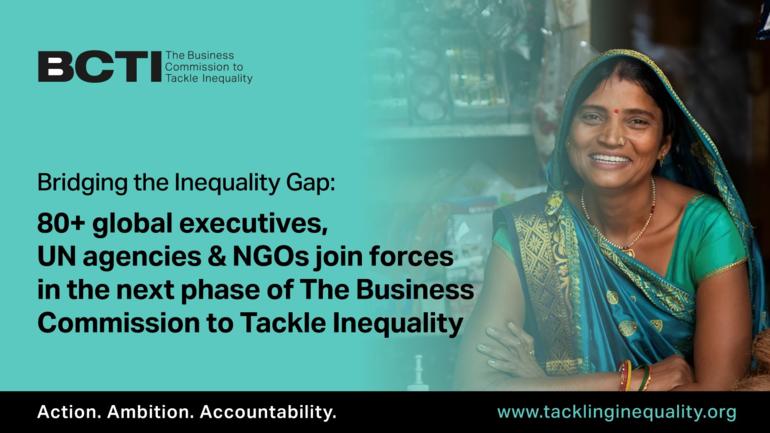Beyond-value-chain actions (BVCA) – actions or investments outside a company’s physical value chain – are instrumental in mobilizing essential private finance to help deliver societal targets such as net zero, nature positive, and global equity. These actions will play a pivotal role in advancing societal objectives and encompass initiatives such as ecosystem protection and restoration; capacity-building programs to empower individuals and drive behavioral change; and R&D in sustainable technologies and practices that expand and extend cost-effective solutions beyond corporate value chains.
Launched today at WBCSD’s flagship Council Meeting in Dubai, the report highlights the urgency of beyond-value-chain actions, emphasizing relying solely on in-value-chain investments is insufficient to meet the financing needs for climate change mitigation, biodiversity conservation, and combatting rising inequality. To achieve global environmental targets, such as aligning with the 1.5°C pathway, an estimated $5.2 trillion in annual climate financing is required by 2030, far exceeding current levels. Significant funding gaps also persist for nature and equity.
The urgency to act is clear. To achieve the 2030 global goals on time, the private sector must annually invest $2.2 trillion to tackle climate change, $160 billion for nature loss, and a yet-to-be-determined amount for social equity challenges.
Dominic Waughray, Executive Vice President at WBCSD, states: “Relying solely on in-value-chain investments is inadequate to meet our global goals. While working on “The Case for Beyond-Value-Chain Actions”, businesses indicated how we could significantly scale up BVCA investments if the proposition would shift from one of voluntary investments to one that could also materially contribute to a company’s own carbon inventory accounting and performance.”
Compelling business reasons drive investments in beyond-value-chain actions, including mitigating business risk, meeting stakeholder demands including investors, preparing for policy changes, and continually renewing the social license to operate. Businesses can align these investments with ongoing Environmental, Social, and Governance (ESG) commitments to magnify their impact on climate, nature, and equity.
Jenny Davis-Peccoud, Partner & Founder of the Global Sustainability Practice at Bain & Company, states: “It is essential for companies to define and align their sustainability ambitions and develop a strong business case as they identify effective beyond-value-chain actions. Companies that join this effort now, at the developmental stages, can genuinely distinguish themselves as leaders in the beyond-value-chain marketplace.”
The report provides guidance for businesses ready to embark on beyond-value-chain actions, including how to define and align their sustainability ambitions, develop a strong business case, identify effective beyond-value-chain actions, and create and execute unique portfolios. It takes a closer look at the current landscape, including key actors and their contributions to enabling beyond-value-chain actions, and issues a call-to-action for policymakers and businesses to collaborate, encouraging broader private sector involvement.
Giulia Carbone, Director, Natural Climate Solutions Alliance, emphasizes: “Standing at the crossroads of climate, nature, and equity crises, we need policymakers and business leaders working together. Policymakers can provide meaningful incentives and infrastructure to reward and encourage businesses to accelerate investment in beyond-value-chain actions. Businesses can co-shape the necessary frameworks, measuring and reporting mechanisms, and share knowledge and expertise from their on-the-ground experiences.”
Accelerate the journey towards a sustainable and equitable future - read the full report for guidance on effective beyond-value-chain actions.
Photo Credit: Keo Seima Wildlife Sanctuary REDD+ Project by Filip Agoo on behalf of Everland LLC








